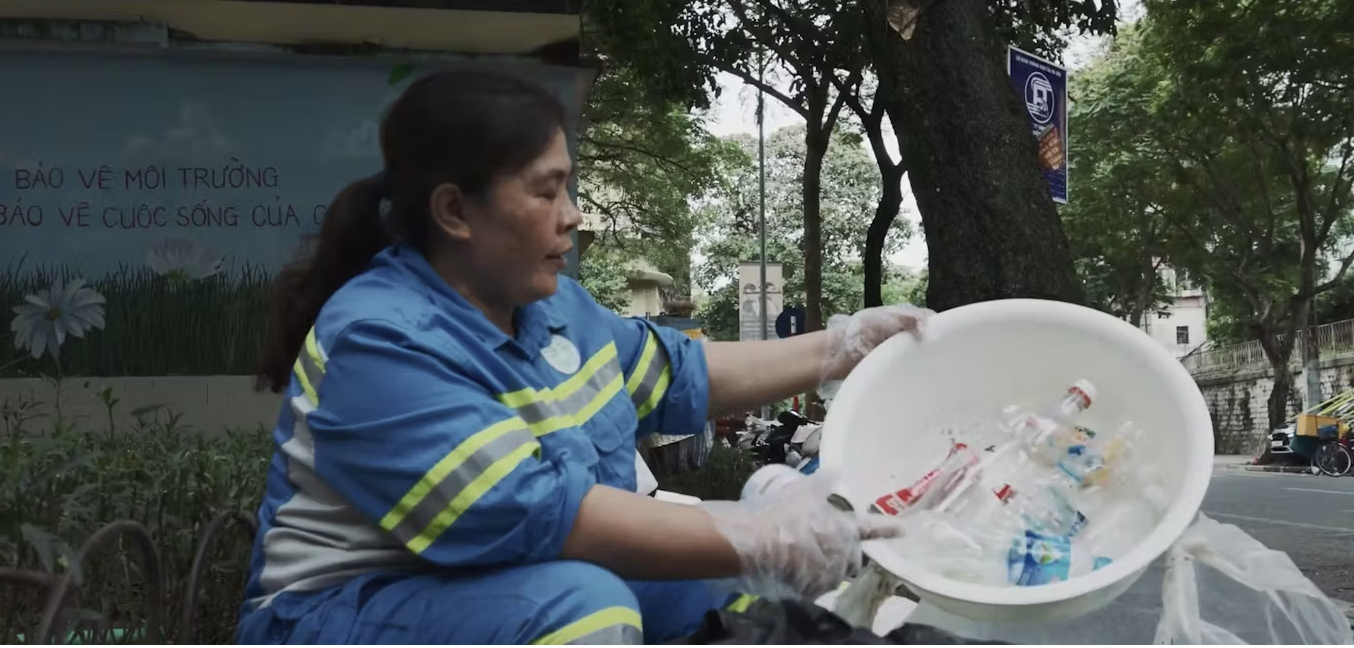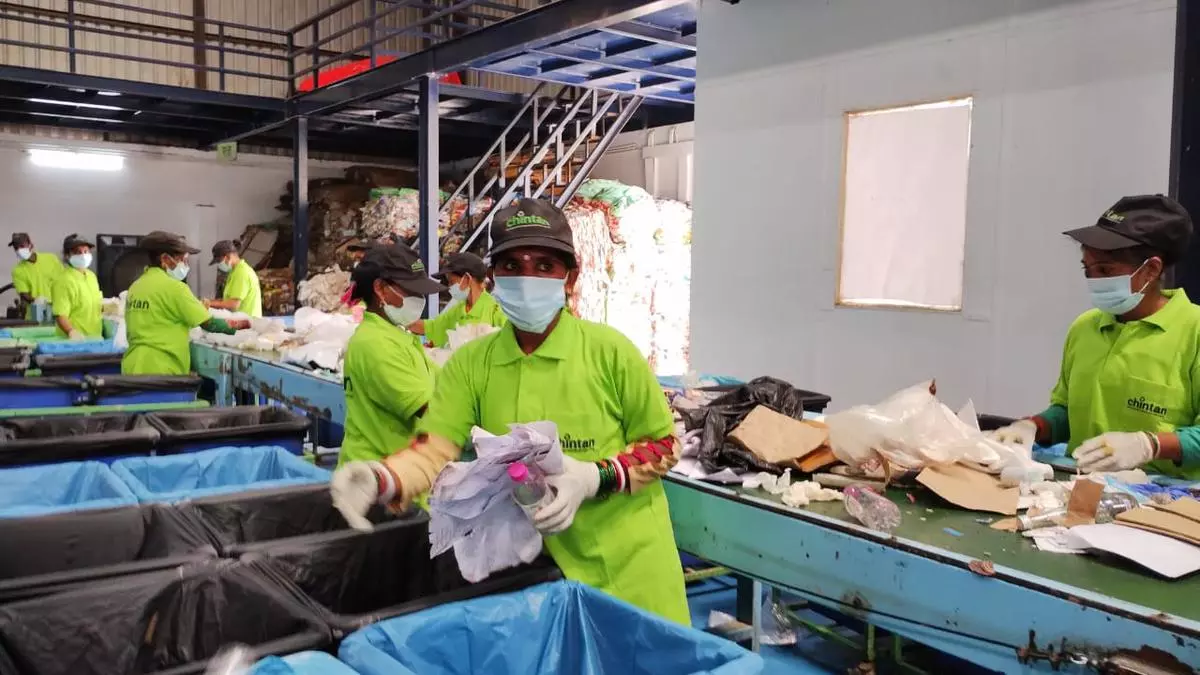Welcome to the “Women Driving Circularity” series, part 8. In this part, we feature the inspiring story of Mrs. Binh and the local collectives from Ha Long City.
GreenHub has been working with the Women’s Union in Ha Long City to introduce innovative ways to reduce plastic waste and provide new livelihoods for local women by repurposing plastic waste. GreenHub has been working with these women for some time to produce new plastic products from plastic banners. Recently, they have commenced working with a new product – recycled plastic straps salvaged from construction work. This is the story of how this came about.

The first days of “scavenging trash”
The idea for a recycled product from brick ties started with an ordinary market trip, and Ms. Binh suddenly realized that the shopping basket we are using today are knitted mainly from plastic material. After a period of use, the quality of the basket will be reduced. Seeing the brick ties being cut or burned after use are causing great harm to the environment, Ms. Binh, with an experience of rattan knitting for many years, came up with the idea of knitting from recycling materials. This type of plastic straps is often used for tying bricks in construction works!


After being collected, brick ties will be cleaned and bundled into bundles according to color
The idea is simple, but it’s not easy to implement. Starting with collecting. The supply – used brick ties – are mostly shredded or burned. At the beginning, Ms. Binh and her companions worked with factories and production workshops, besides mobilizing acquaintances, and even handpicking each wire on the roadside. She joked, now that they are very well-known, whenever seeing someone collecting the brick ties, the local Ha Long people will laugh: “Hello, Ha Trung” (Mrs. Binh’s ward – where the movement started).
After being collected, brick ties will be washed, then sorted by color and bundled. She said many people do not believe her products are recycled because they look so new and clean, however if you look closely, you will still see the wire is scratched, sticky with a little lime, a little grout that is difficult to clean. I personally think it’s because you did your job too well…
Not only is it laborious to collect and clean, but this type of material is also available seasonally. In the non-construction period, brick ties are rare. Even in the high season, the wires obtained vary in length, and the color is not as desired. Still, on top of all, they never thought about buying new straps for supply. They understand, the most meaningful thing about the product lies is the reuse and reduction of plastic waste into the environment. If you buy new ones, that meaning is no longer there. I am grateful that they have considered thoroughly, and for helping the common “Protect the environment” slogan no longer stay on paper but be actualized instead. Their products are not simply baskets, but they also embody the spirit of hard work, study, and sincere desire to reduce waste released into the environment.
At first, when the issue was raised, many women who heard about the idea were also excited to do the same. However, when starting to practice, people realize that knitting is more difficult than initially envisioned. Some people are discouraged, others want to find shortcuts to knitting such as using molds, using buckets, etc. But in the end, we realize that skillful hands are the best tools to create a new life for the laces. Together, we have experienced with different combinations of materials, colors, find out the user’s needs to improve the product in terms of type, size, and design.

The scratched and imperfect conditions proudly represent authenticity.
GreenHub – as a companion, always helps with both capacity development and business idea enhancement. Hopefully, in the upcoming, there will always be further companionship of individuals and organizations who love the environment.
Supporting women in starting a business for recycling products is part of the project “Supporting the Plastic Action Network (PAN)” and Connecting stakeholders for 3R implementation (Reuse – Reduce – Recycle) in Viet Nam – implemented by GreenHub, funded by the global Coca Cola Foundation.
Story and photos shared by GreenHub.
Read how UNDP is advancing a gender-sensitive inclusive Circular Economy: The tactics “3Vs” to drive a gender-inclusive circular economy – Viet Nam Circular Economy
















